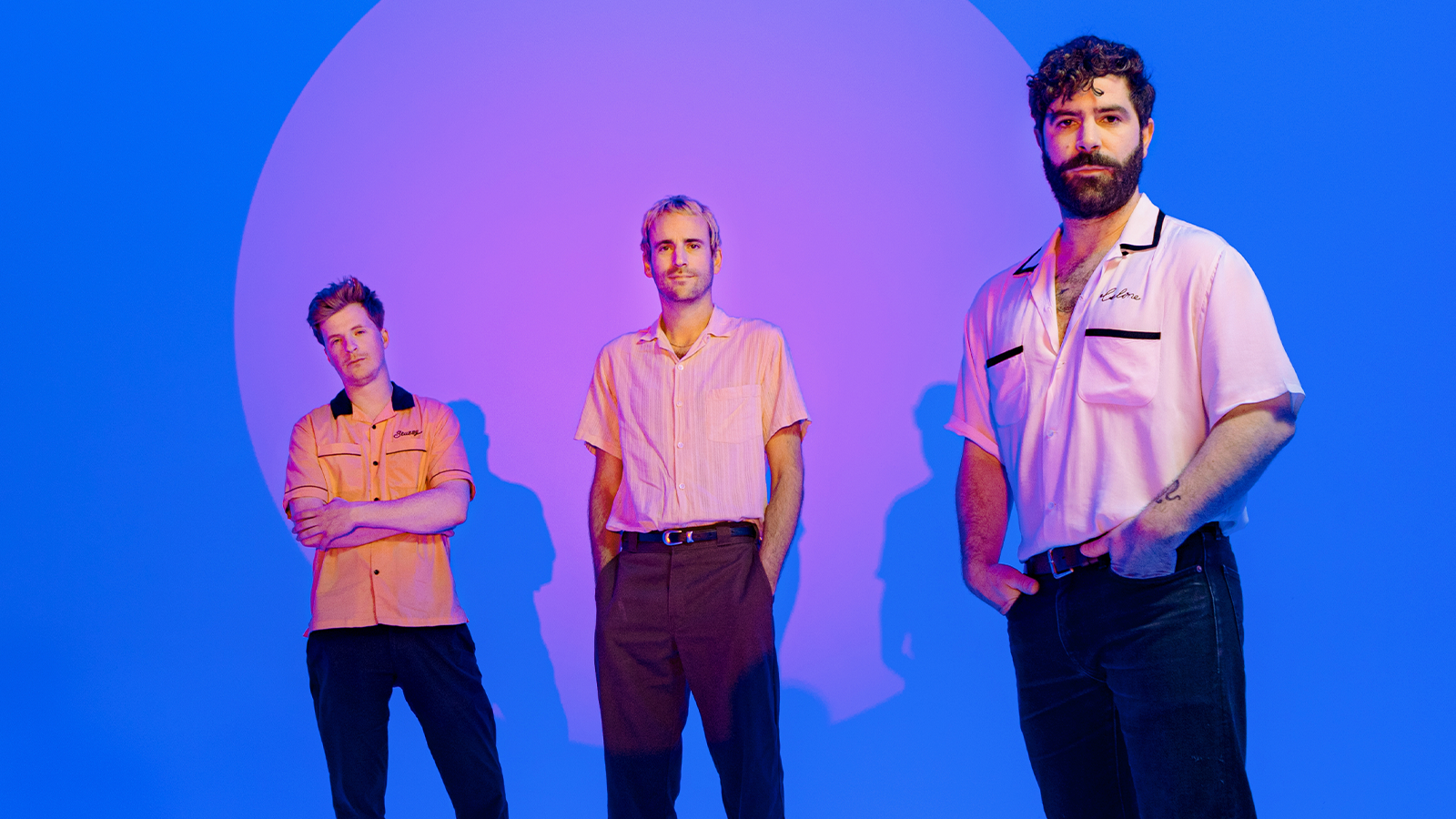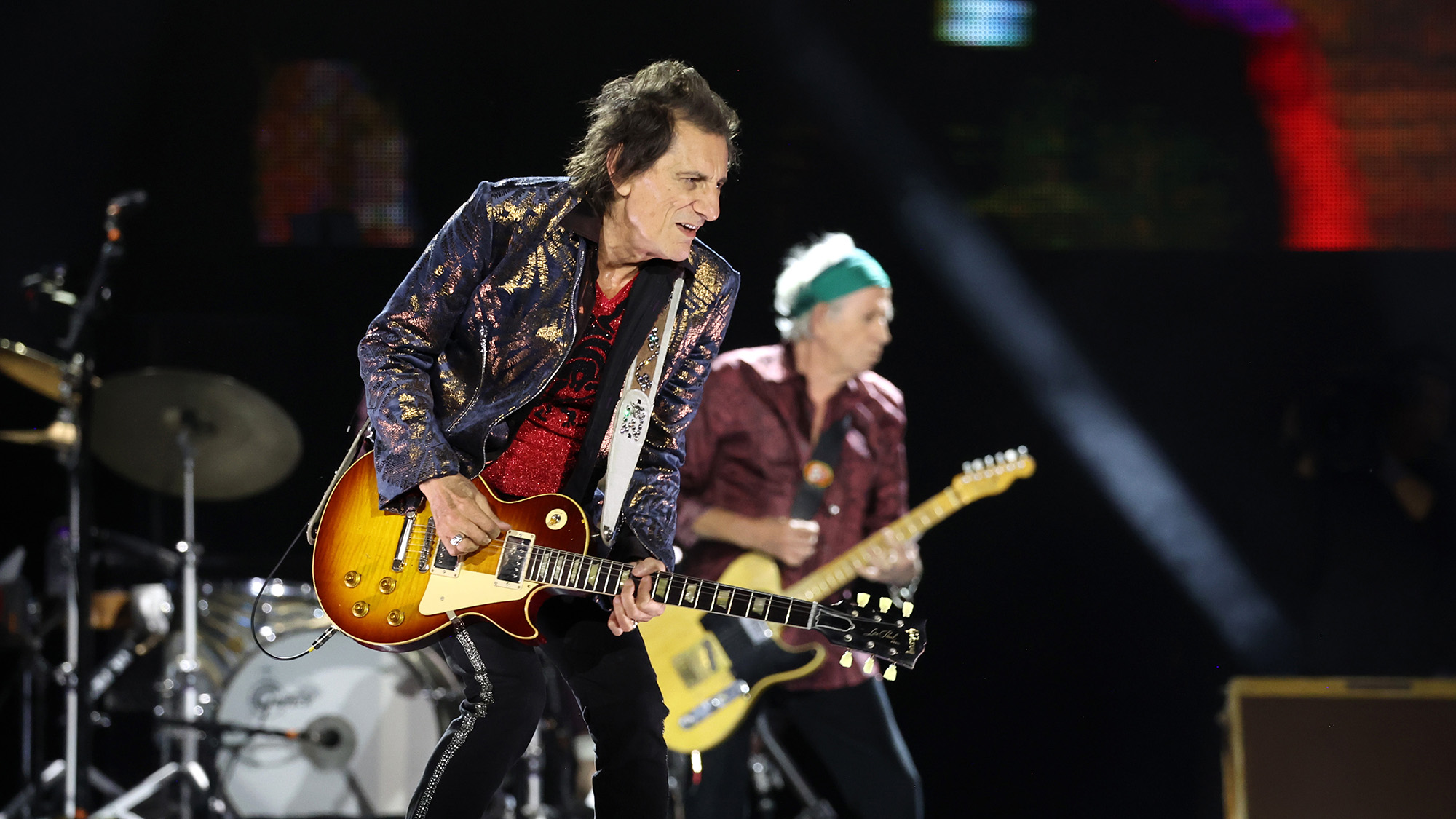Foals: “We very clearly enjoyed living in our own sound on this record”
Life is short, so we should spend as much of it partying as we can. And with their seventh album, Foals has delivered the ultimate soundtrack

There comes a point in every muso’s career that album releases stop being special. It’s not that they aren’t exciting, per se – just that fans will know what they’re in for, that feeling of routine has settled in, and it’s no longer this big, celebratory event. For most bands and artists, that’s around the fifth or sixth album. Foals hit both of those milestones in the same year – 2019, when they released their two-part epic Everything Not Saved Will Be Lost – so when word of their seventh album came towards the end of last year, it was exciting, sure, but it wasn’t like we leaped up onto our desks and bellowed through the office, “Holy shit, guys, Foals just announced a new album!”
But then we actually heard some of the songs on this thing. Keyboards and bass guitars stole the spotlight, as did a side of Yannis Philippakis’ vocal palette that felt a little sprightlier than normal. The hooks hit hard and fast, and the grooves were inescapable. It’s hard to believe that Life Is Yours came together during a pandemic, because it is easily Foals’ most upbeat and electric album, suited only for the biggest and most debaucherous of parties. But most importantly, it’s Foals’ most special album – a mission statement declaring that only good vibes may enter their circle.
Australian Guitar hit the dancefloor with rhythm guitarist Jimmy Smith to unpack this energetic epic.
For the sake of a hypothetical, let’s say I’ve never listened to a Foals record before – why is this the one I should check out?
Probably because it’s [Foals] distilled to its purest form – which makes sense, y’know, there’s only three of us left. And I don’t know if it was something to do with when it was written, during the pandemic, but we very clearly enjoyed living in our own sound on this record.
Foals have always been a good “party record” band, but this one makes all the others sound like lowkey, emo ballad albums. Where did all of this energy come from?
We’re all just trying to be positive during a pretty terrible time. I think that’s where the genesis of the whole album came from – we have no interest in heavy or emotional music, so when we were writing, it was just like, “No, let’s make this one a little happier.” And no-one really wants to hear that either, I don’t think. Especially after Coronavirus, it was like, “Let’s just do a fun record.” As soon as we said that, and we were all okay with it, we were off. I’m glad that people are picking up on that and embracing it.
There’s so much going on with this album, musically – it’s all very measured, but every new listen offers something new to discover. As both a guitarist and a keyboardist, how did that expanded soundscape open up a new world of possibilities?
I think that’s a testament to the producers we were working with – specifically Dan Carey, he was the most experimental out of all of them. When we were demoing this record, I basically just played my guitar straight into my amp. I was like, “I don’t want any pedals, I don’t want any reverb… I’m sick of all that stuff! I just want a bitchin’ guitar sound, and that’s it.” But then you’d be recording with Dan, and he’d be running everything through all these modular synths and programs and God knows what – his studio is just like Aladdin’s cave, it’s amazing. It’s tiny, you basically just play in the middle of the room, and you’re just surrounded by equipment and blinking lights. And he’s there like the mad scientist, rushing between instruments and flicking all these switches...
I don’t even know what he was doing half the time, to be honest. It was a bit annoying, actually – I got annoyed at times because I didn’t know what was happening, and I just wanted to know what was making all the sounds I was playing. But then he explained it all and it was okay. But yeah, we kept everything so simple before we hit the studio, and that enabled the producers to really go to town on the sonics. I also did a lot of exploration into keyboards – I bought a lot of old synths, and I finally learned how to use synthesisers properly – and I bought some nice guitars. I did the whole album on a Fender Jaguar from the mid ‘60s, which I treated myself to during lockdown. I’d always wanted like a vintage Jaguar, so I was like, “Alright, I’m just gonna get one.”
All the latest guitar news, interviews, lessons, reviews, deals and more, direct to your inbox!
What is it about the vintage Jag that just makes your heart skip a beat?
There’s like notes between notes, or something – it just resonates. And there’s a unique kind of growl that you can only get from a vintage guitar – specifically a Jaguar. It’s something about the pickups, which the new ones just don’t have. It’s weird, because you can A and B them, and the new one just doesn’t sound anywhere near as good. It should be the other way round, really – you’d think they’d’ve figured out how to make the guitar sound better over time.
This Jaguar was one of the last Fender Guitars made before they got bought by CBS – before they basically got turned into a factory. It’s from when they all used to be handmade by one person, basically, just sitting there. I quite liked the idea that maybe this guy put a little bit more love into it because it was literally one of the last ones made before it all changed. So yeah, it’s super romantic. And it belonged to some Dutch popstar in the ‘60s – I don’t know his name, but that’s what the guy who sold it to me told me. It’s beautiful. They used to come with logbooks so you could see who owned them before you, and you’d pass it down the line – but sadly, they’ve all gone missing. That’s one little thing about vintage guitars – you’re sort of just the custodians of them.
Did you have the stage in mind when you were putting this record together?
Yeah, definitely. There’s this one song on the record called ‘The Sound’, and when we were doing rehearsals recently, the whole time, we just couldn’t stop playing that song. The band next to us in the complex must have been like, “Oh my God, can they stop playing that song!?” We’d play it for hours and hours, and the whole time, I kept thinking of a festival, something like 10,000 people in a tent.
Speaking of which, when are we going to see Foals tear it up in Australia next?
We’re definitely working on it. There hasn’t been anything mentioned in the way of dates, yet, but the crows have been sent out, and they’re going to come back soon with all the information about when we can play Australia. It’s just a question of when, y’know? Because logistically, things are a little bit of a nightmare right now. I mean, I don’t have to handle any of it, but I feel sorry for the people that do. But we’re definitely coming. I don’t know whether we’ll come and do our own tour, or if we’ll tie it in with some festivals – the good about Australia is that there’s festivals happening all the time, so you can kind of just cruise in and pretend it’s summer anytime.

Ellie Robinson is an Australian writer, editor and dog enthusiast with a keen ear for pop-rock and a keen tongue for actual Pop Rocks. Her bylines include music rag staples like NME, BLUNT, Mixdown and, of course, Australian Guitar (where she also serves as Editor-at-Large), but also less expected fare like TV Soap and Snowboarding Australia. Her go-to guitar is a Fender Player Tele, which, controversially, she only picked up after she'd joined the team at Australian Guitar. Before then, Ellie was a keyboardist – thankfully, the AG crew helped her see the light…
![FOALS - 2am [Official Music Video] - YouTube](https://img.youtube.com/vi/N4aXfFwS7qE/maxresdefault.jpg)
